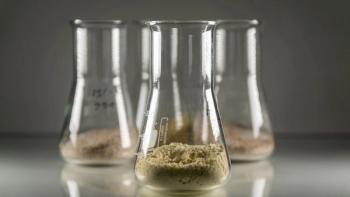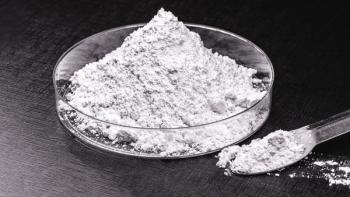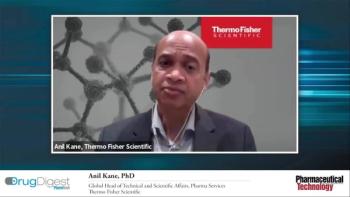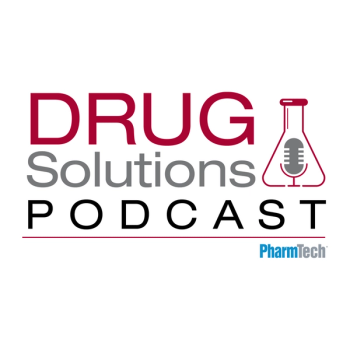
ImmunoGen has formed a research collaboration with Oxford BioTherapeutics to develop novel antibody-drug conjugates for cancers with high unmet needs.

ImmunoGen has formed a research collaboration with Oxford BioTherapeutics to develop novel antibody-drug conjugates for cancers with high unmet needs.

The right processes used with the right excipient combinations address evolving formulation needs.

Lonza and Israel Biotech Fund form a two-year agreement to support accelerated development and manufacture of biologics and small molecules.

Lubrizol has launched Apisolex technology to improve solubility and simplify the manufacturing of parenteral drug products.

Resolving operational bottlenecks makes mAb manufacturing more efficient.

Inhalation formulations are complex, and empirical data are essential for realizing optimal solutions.

Evonetix’s thermally controlled DNA synthesis technology is designed to enable highly parallel DNA synthesis in a benchtop platform.

Although not easy to do, it is essential because excipients can affect drug-product safety and efficacy.

Roquette is investing €25 million at its site in Lestrem, France to strengthen its position in the polyols market.

New report released by USP offers a look into API supply-chain vulnerabilities.

Evonik has launched new EUDRATEC technology to improve solubility and performance of oral small molecules.

Spectrum Chemical has further expanded its bioCERTIFIED product portfolio to support the growing global demand for new vaccines and therapeutics.

Alvea has begun preclinical testing of a scalable, shelf-stable DNA vaccine against SARS-CoV-2 variants.

Recipharm has strengthened its biologics manufacturing capabilities with the acquisition of both Vibalogics and Arranta Bio.

ImmunoGen and Eli Lilly and Company have entered into an agreement that gives Lilly exclusive rights to research, develop, and commercialize ADCs designed for targets selected by Lilly from ImmunoGen’s camptothecin technology.

Piramal Pharma Solutions plans to construct a multipurpose ADC manufacturing and aseptic fill/finish facility in Grangemouth, Scotland, and to upgrades its existing API manufacturing facility in Morpeth, England.

China-based CDMO Asymchem acquires US-based chemical technology company Snapdragon.

In this episode of Drug Digest, Chris Spivey, editorial director, and Meg Rivers, senior editor, dive into APIs, excipients, and formulation advances, specifically pairing the right APIs and excipients for optimizing formulations.

Personnel need to be trained in various analytical skill sets for biologic drug substance testing.

In this episode of the Drug Solutions podcast, Chris Spivey, editorial director, and Meg Rivers, senior editor, interview experts on up-and-coming 2022 trends in the bio/pharma industry.

The collaboration between Bristol Myers Squibb and Century Therapeutics will combine Century’s iPSC-derived allogeneic cell therapy platform with Bristol Myers Squibb’s expertise in cell therapy and oncology drug development.

FDA has cleared an IND from Poseida Therapeutics, allowing continued development of the company’s allogeneic CAR-T cell therapy candidate for treating multiple solid tumors.

Sample preparation tends to be manually labor intensive, but automating this step helps streamline the glycosylation monitoring workflow.

Dosage form and patient needs drive excipient choice.

Poor solubility remains a big issue for drug development and, as such, is driving innovation in approaches and use of novel technologies to help overcome the associated challenges.